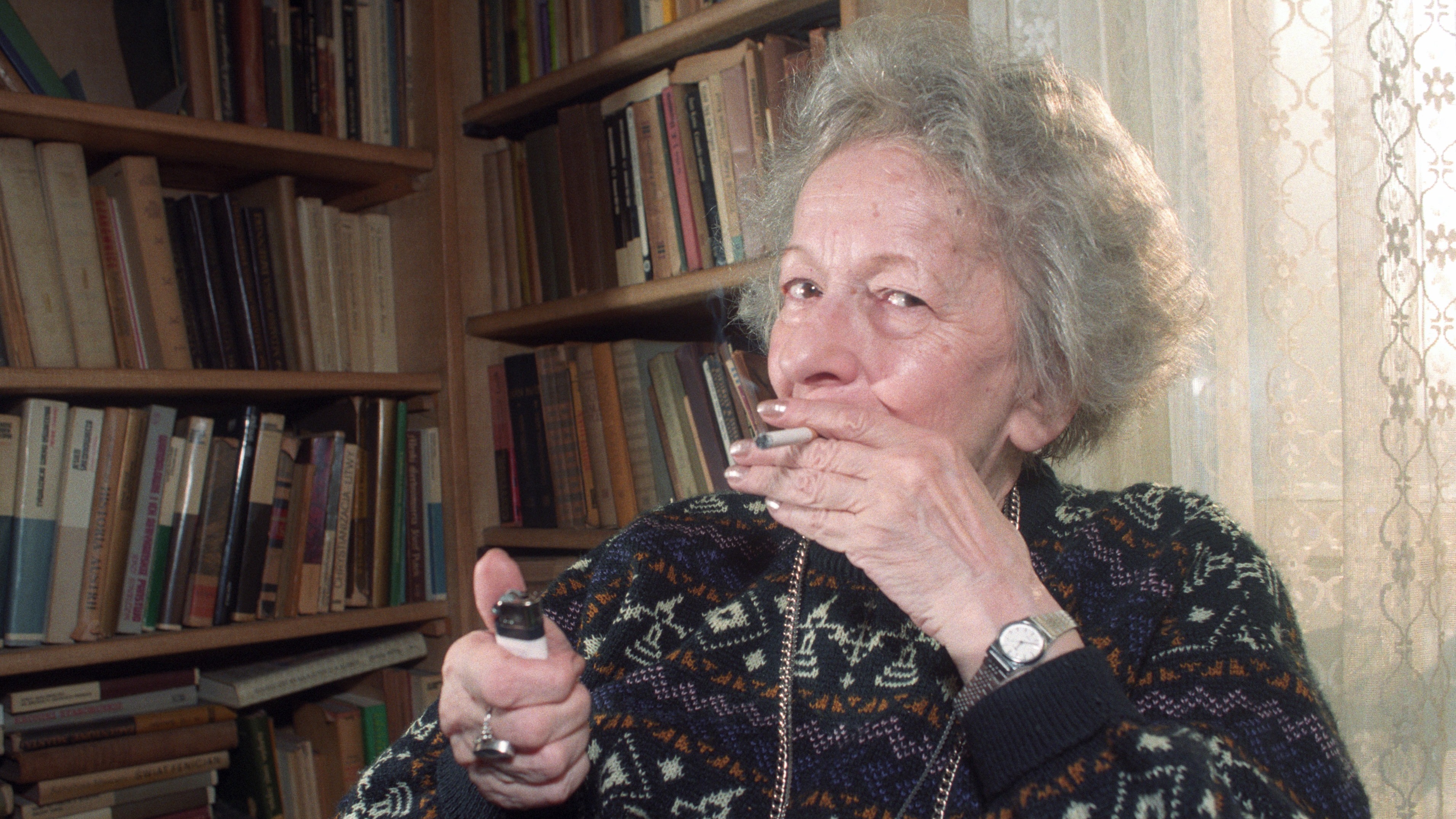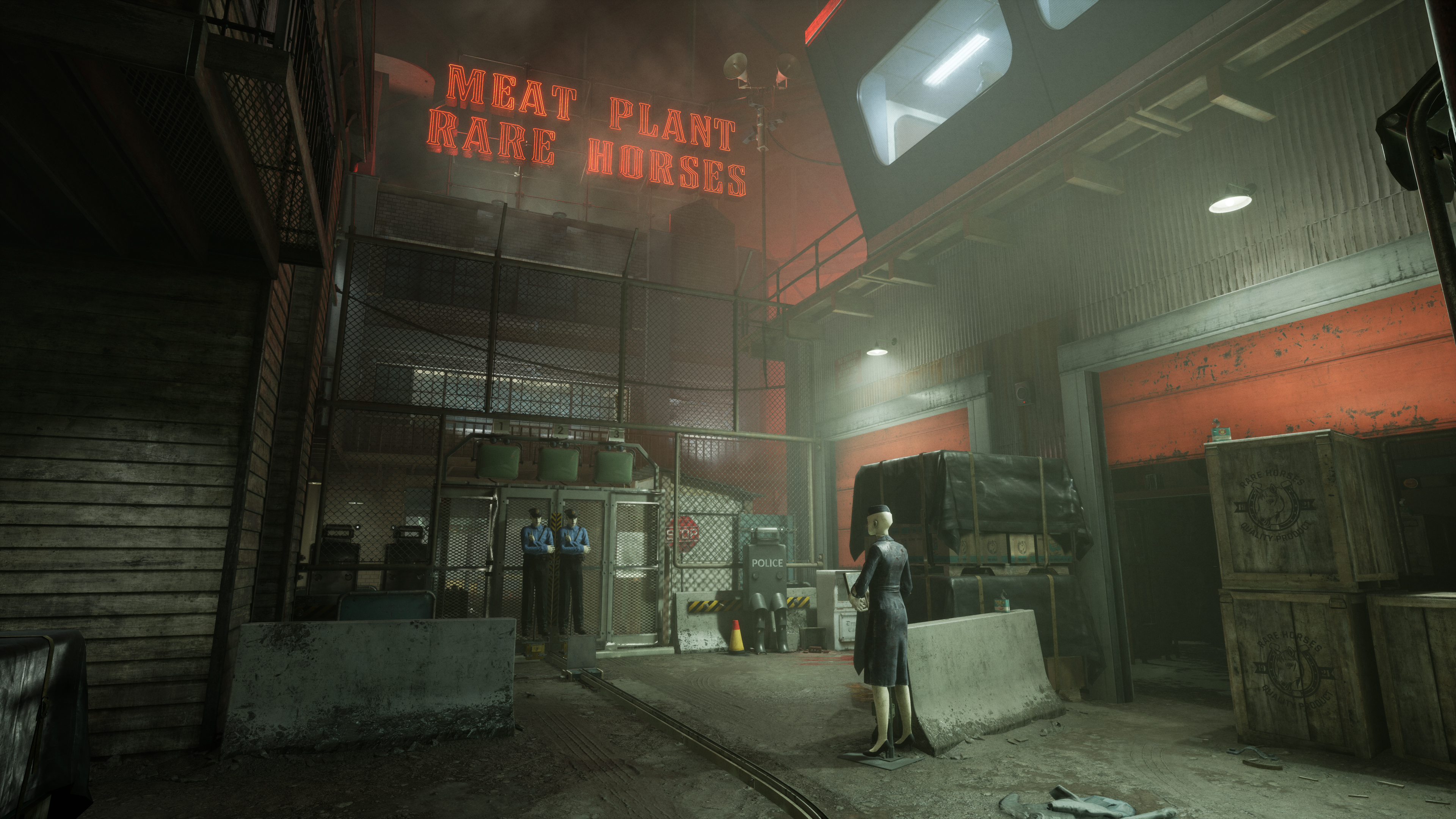
Just saying I think I could have seen that coming.
Ask yourself this: What could be dodgier than a radio station giving its human hosts the boot and replacing them with a cohort of three alarmingly photogenic Gen-Z AIs? If you answered ‘having those three zoomer AIs interview another AI, this one imitating a Nobel prize-winning writer who died 12 years ago,’ then congratulations, you may have a future ahead of you at Polish station Radio Kraków, which is in hot water for doing just that (via Onet.pl).
On Monday, Radio Kraków announced that it was overhauling its OFF station. Since 2015, the station had broadcast (all following quotes are machine-translated) “a playlist as well as original music programmes and a two-hour morning programme, in which the most time was devoted to cultural and social events in Kraków with the participation of Kraków artists and people associated with the Kraków club scene.”
But it’s 2024 and, apparently, that doesn’t bring in the ears these days. In its place, declared the station, listeners would henceforth hear “the AI-created voices of three hosts—model representatives of Generation Z.”
These would be 20-year-old Emilia Nowa, “a journalism student [and] pop culture expert,” who is “passionately following the latest trends in the world of cinema, music and fashion”; 22-year-old Jakub Zieliński, who’s studying Acoustic Engineering at AGH (a Kraków university); and rounding out the three was 23-year-old Alex, a former psychology student who is “socially engaged, passionately discussing topics related to identity [and] queer culture.”
Except none of those people, their degrees, their disturbingly captivating AI-made portraits, or their interests were actually real, of course, because they were all robots.
The reaction from listeners was immediate and acrid. On the Facebook post announcing OFF radio’s new direction, former fans left comments like “I wish you exactly the same—exclusively AI as listeners,” and “It seems that the easiest person to replace is the manager who came up with it.”
OFF radio’s former human staff were none too pleased, either. In a separate Facebook post (via Notes From Poland), ex-OFF host Mateusz Demski lambasted Radio Kraków editor-in-chief Marcin Pulit for failing to note—in the AI show’s glamorous announcement—that “a dozen or so people had lost their jobs just a moment earlier.” Continuing, Demski writes that “This gentleman [Pulit] had the audacity to boast about his many years of journalistic experience. For me, in my opinion, this man has nothing to do with journalism.”
For his part, Pulit answered complaints about human job losses by claiming that “no employee of Radio Kraków was fired.” Rather, OFF hosts were “external collaborators” whose contracts were terminated, and “not because of AI.” Pulit said that a lot of OFF radio’s content overlapped with programmes on other Radio Kraków stations, and that “the listenership range of OFF Radio Kraków was close to zero. This was the basis for the decision to make the change.”
Demski then implored readers to sign a petition protesting the shift to AI and the threat it poses to journalism, which he had set up “a little in helplessness, a little in anger.” It has received 16,000 signatures at the time of writing.
But wait, it gets worse. Like I said, the Gen-Z AI trio’s gala debut consisted of an interview with none other than Wisława Szymborska, a world-renowned Polish poet and writer who won the 1996 Nobel prize in literature for, ironically enough, “poetry that with ironic precision allows the historical and biological context to come to light in fragments of human reality.”
The problem with that, of course, is that Szymborska has been dead for 12 years—she died of lung cancer in 2012. The subject that Emilia, Jakub, and Alex interview was, herself, and AI construct proffering opinions on all manner of things, including “Korean literature and this year’s Nobel Laureate Han Kang.” You can hear the interview as it aired in this Instagram post.
You can find a (again, machine-translated) transcript of the chat here, including Szymborska enthusing about Pedro Pascal endorsing the work of Polish writer Olga Tokarczuk on Instagram a few weeks ago.
The reaction was pretty much as you’d expect. “After firing employees, you could at least retain a minimum of dignity” wrote one Polish listener on Facebook. “We are witnessing a historical self-immolation,” wrote another. “I wish from the bottom of my heart many lost lawsuits, massive financial penalties and a clumsy bankruptcy,” judged another.
And, if you couldn’t tell, I can’t help but share the sentiment. Deploying a gaggle of AI simulacra and hoping they capture the voice of Gen Z is not journalism, and getting them to tackle topics as sensitive and fraught as, for instance, “queer culture” seems like both inviting catastrophe and disrespecting the actual human beings to whom these subjects truly matter. That’s to say nothing of thoughtlessly tampering with the memories of the dead with the AI resurrection of figures like Szymborska. Many have asked, but I could not find an answer from the station as to whether it secured the permission of Szymborska’s heirs before pulling its stunt.
Will it continue? The executive class has never been one to let a labour-saving technology slip through its fingers, but the response to this one has been disastrous. As far as Radio Kraków’s editor-in-chief is concerned, though, “We are testing the possibilities and limitations of this technology at the current stage of its development.”







